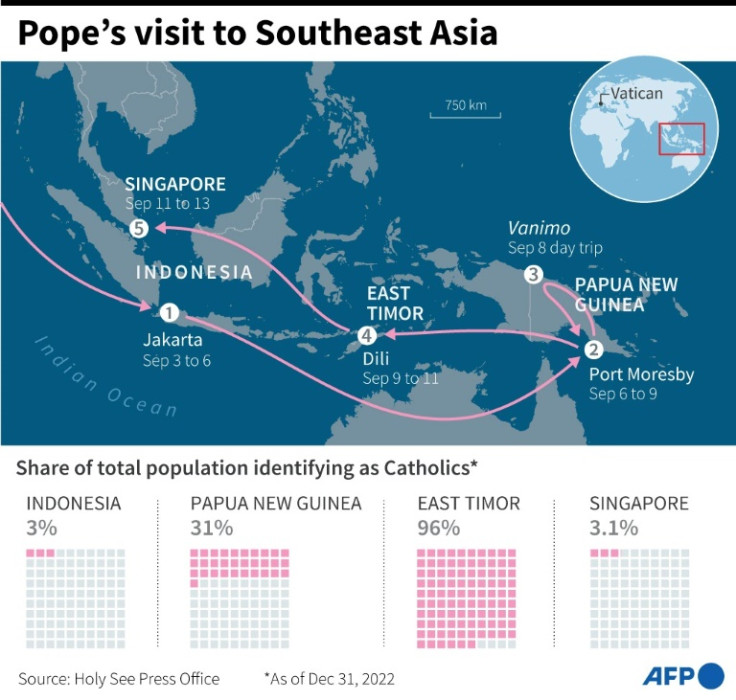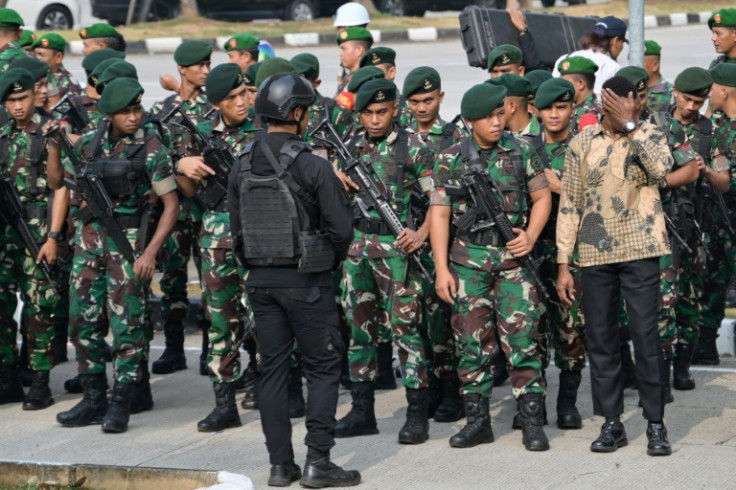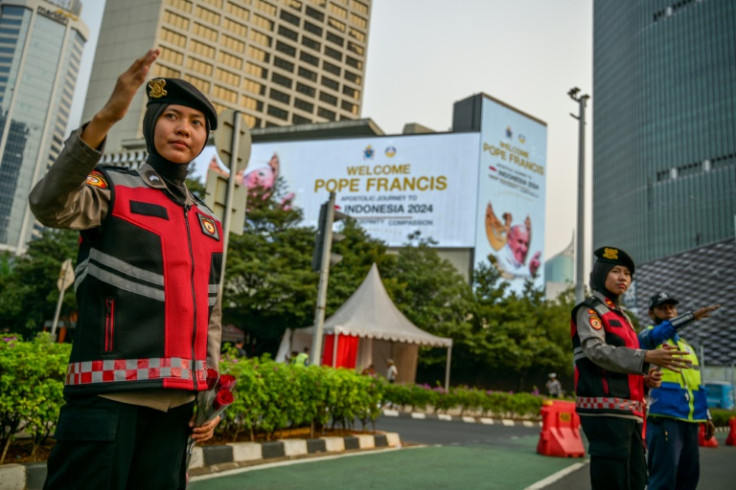
Pope Francis arrived in Muslim-majority Indonesia on Tuesday to kick off a four-nation tour of the Asia-Pacific that will be the longest and farthest of the 87-year-old's papacy.
The head of the world's 1.3 billion Catholics touched down in Jakarta for a three-day visit devoted to inter-religious ties, and will then travel to Papua New Guinea, East Timor and Singapore.
The 12-day tour will test the pontiff's increasingly fragile health, but he is often energised by being among his flock and in recent weeks has appeared in good spirits.
The pope was due to have a relaxing day in Jakarta on Tuesday following the long flight from Rome, then meet President Joko Widodo on Wednesday in the first major set piece of his visit to the world's most populous Muslim-majority country.
Catholics currently represent fewer than three percent of the population of Indonesia -- about eight million people, compared with the 87 percent, or 242 million, who are Muslim.
But they are one of six officially recognised religions or denominations in the secular nation, including Protestantism, Buddhism, Hinduism and Confucianism.
On Thursday, Francis will meet representatives of all six at Istiqlal Mosque, the largest in Southeast Asia and a symbol of religious co-existence.
It is linked via a "tunnel of friendship" to the cathedral across the road, where Christians in recent days have been taking selfies with a life-sized cutout of the pope.
He will then host a mass and deliver a sermon at Indonesia's 80,000-seater national football stadium.
Despite Indonesia's official recognition of different faiths, there are concerns about growing discrimination, including against Christians, with local Catholics hoping the pope will speak out.
But Michel Chambon, a theologian and anthropologist at the National University of Singapore, said the pope would press a wider message he had already delivered in other Muslim-majority countries, from Iraq to Bahrain, Turkey and Morocco.
The visit "is not really aimed at Catholics in Indonesia" but is intended to highlight the global importance of Islamic-Christian dialogue, he told AFP.
That message was already being felt by some in Jakarta.
"When there's an event like this, we enjoy it because when it's our religious events, they (Catholics) also show tolerance to us," said Ranggi Prathita, a 34-year-old Muslim who has been selling customised Pope t-shirts.
"We all respect each other."
The country's religious affairs ministry has also hailed the visit as a symbol of Indonesia's religious diversity.
"It is very important in conveying a message and showing the world that religious harmony in Indonesia is guaranteed and has been implemented," ministry spokesman Sunanto, who goes by one name, said Monday, state news agency Antara reported.
At the Istiqlal Mosque, Pope Francis will sign a joint declaration with its grand imam that will focus on "dehumanisation", notably the spread of violence and conflict, as well as environmental degradation, according to the Indonesian bishops' conference.
Francis has repeatedly urged the world to do more to combat climate change and mitigate its effects -- including rising sea levels, which threaten Jakarta.
Indonesia has experienced terrorist attacks over recent decades, including bombings on the resort island of Bali by Islamist militants in 2002 that left 202 people dead.
Security has been stepped up for the pope's visit, with roads around key sites where he is scheduled to visit being re-routed or closed.
His trip to Indonesia is the third ever by a pope and the first since John Paul II in 1989.
Originally planned for 2020 but postponed due to the Covid pandemic, the visit takes place just three months before his 88th birthday.
The Argentine now routinely uses a wheelchair to move around, underwent hernia surgery last year and has been plagued by respiratory issues.
He has not travelled abroad since visiting Marseille in France in September last year, having cancelled a planned address at United Nations climate talks in Dubai two months later.
He will be travelling to Indonesia with his personal doctor and two nurses, but Vatican spokesman Matteo Bruni said this is normal, saying no extra precautions were in place.










